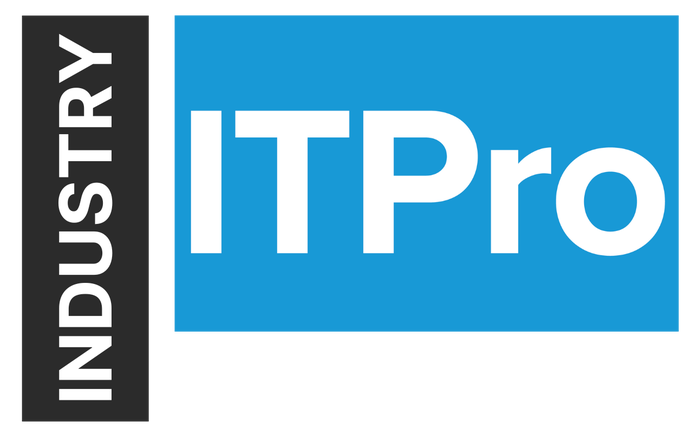
Insight and analysis on the information technology space from industry thought leaders.
How to Get Better Data Insights with AI-Driven SQLHow to Get Better Data Insights with AI-Driven SQL
The integration of AI with SQL is transforming data management, providing deeper insights, automating more mundane tasks, and improving user experiences.
January 14, 2025

The ability to draw insights from data without spending significant time writing code has shifted from fantasy to reality due to the convergence of artificial intelligence (AI) and structured query language (SQL). AI is now automating SQL query generation and revolutionizing the approach to data analysis in profound ways. The algorithms provided by AI can optimize SQL queries for performance.
The future of AI-driven SQL is promising, with ongoing advancements in technologies such as deep learning, reinforcement learning, and federated learning. These innovations will further enhance the capabilities of SQL by enabling more complex analytics, real-time decision-making, and adaptive data management. As organizations increasingly adopt AI-driven SQL solutions, the landscape of data management and analysis will continue to evolve, paving the way for more intelligent, efficient, and accessible data-driven insights across industries.
Structured Query Language
Invented in the early 1970s to interact with emerging relational database management systems, SQL remains the most popular and widely used database query language. Relational databases store information in tables of columns and rows, and SQL allows users to extract specific data, aggregate results, and filter information according to various criteria. Today, there are commercial versions of SQL, like Oracle and Microsoft SQL, and open-source versions, such as PostgreSQL, SQLite, and MySQL.
In the era of big data, SQL has adapted to handle large-scale data processing. Many platforms offer SQL-based querying on massive datasets, integrating SQL with big data technologies such as data analytics, cloud computing, and data visualization. SQL databases are increasingly deployed in cloud environments, offering scalability, flexibility, and managed services. Cloud platforms like AWS, Azure, and Google Cloud provide fully managed SQL databases, making it easier for organizations to leverage SQL in a cloud-native manner. SQL remains a cornerstone of data management, evolving to meet the demands of modern data environments. Its ability to interface with a wide range of database systems and advancements in handling complex and large-scale data ensure its continued relevance and utility in the data landscape.
Artificial Intelligence
While AI has made big waves in nearly every industry, the world is also in the midst of a data revolution, with an estimated 90% of the world's data generated in the last two years. Together, AI and big data have the potential to remake the world — each relies on the other to unlock its full potential. In fact, data has been described as the foundation and currency of effective AI projects.
Both security and ethics concerns have arisen as AI use becomes more widespread. Because AI relies so heavily on the datasets it's trained on, it reflects the values, biases, and stereotypes within that data. Models can inadvertently reinforce current or past biased patterns rather than act as impartial tools. For example, racial discrimination, gender bias, and unfair evaluation were among the five most common issues found by researchers looking at real-world examples of AI ethics incidents.
It's imperative to take appropriate security measures to protect the ever-increasing amount of data organizations have access to, and AI can be a boon or a burden. According to a survey by Splunk, cybersecurity executives are split on whether adversaries or defenders will benefit the most from generative AI. Most respondents (91%) have adopted general AI within their security teams, with some of the most common use cases being identifying risks and threat detection, prioritization, and intelligence analysis.
To leverage the potential benefits offered by AI and big data, it's critical for companies to take potential security and ethics issues seriously. Cybercriminals use AI to create new types of cybersecurity attacks, conduct reconnaissance, and make their existing attacks more effective. For this reason, it's vital for security teams to be prepared to counter those efforts. Gaining valuable and accurate insight from datasets requires clean and high-quality data that is carefully examined for potential sources of bias and other ethical risks.
AI and SQL for Real-Time Analytics and Decision-Making
AI-driven SQL can unlock significant benefits for companies by enhancing data management, improving efficiency, and providing predictive analytics. AI helps optimize and automate varied facets of data handling, making it easier for organizations to ensure data quality, make informed decisions, and manage large volumes of data. It can also identify ways to improve database performance. AI moves more rapidly than humans, and by enabling faster query execution and providing predictive and prescriptive insights, AI-driven SQL supports real-time analytics and decision-making, helping organizations make more informed, timely, and strategic decisions.
Because AI can process huge amounts of data more quickly and efficiently than humans, it can detect patterns, trends, or insights that may have gone unnoticed. Experts are already developing tools to harness the power of AI for SQL. Microsoft has Azure SQL, IBM offers IBM Db2 AI, and in July 2024, MIT announced a generative AI system for databases called GenSQL. Other enterprises are developing ways to pair SQL with vector databases, which store data as arrays of numbers in clusters of related items, enabling SQL to handle unstructured data like images, audio and text files, and social media. AI is the ideal tool to unlock insights in unstructured data, so organizations like SingleStore, MyScale, and even Azure are among those working to combine the power of AI with both SQL and vector databases.
Data management and analytics are two areas where AI has the most transformative potential, and when paired with SQL, organizations can leverage the best of both worlds to their benefit. SQL remains a cornerstone of data management, and integrating AI and large language models (LLMs) can provide deeper insights, automate more mundane tasks, and improve user experiences. With growing concerns about data privacy and bias in LLMs and AI, there are risks to consider and mitigate carefully, but with some thought and care, the benefits outweigh the risks. Organizations that delay AI adoption risk losing to competitors and leaving potentially valuable insights locked inside their data.
About the Author:
Deepti Sridevi Malyala is a seasoned product manager and business leader with 16 years of experience in quality and software development. With a strong focus on Salesforce, SQL, and artificial intelligence, she has led strategic initiatives across a variety of sectors, including banking and telecom. Her expertise includes driving innovative solutions that harness cutting-edge technologies to solve complex business challenges. Deepti holds multiple certifications and has a bachelor's degree in electrical and electronics engineering from Jawaharlal Nehru Technological University, Hyderabad, India. Connect with Deepti on LinkedIn.
About the Author
You May Also Like








.jpg?width=700&auto=webp&quality=80&disable=upscale)
